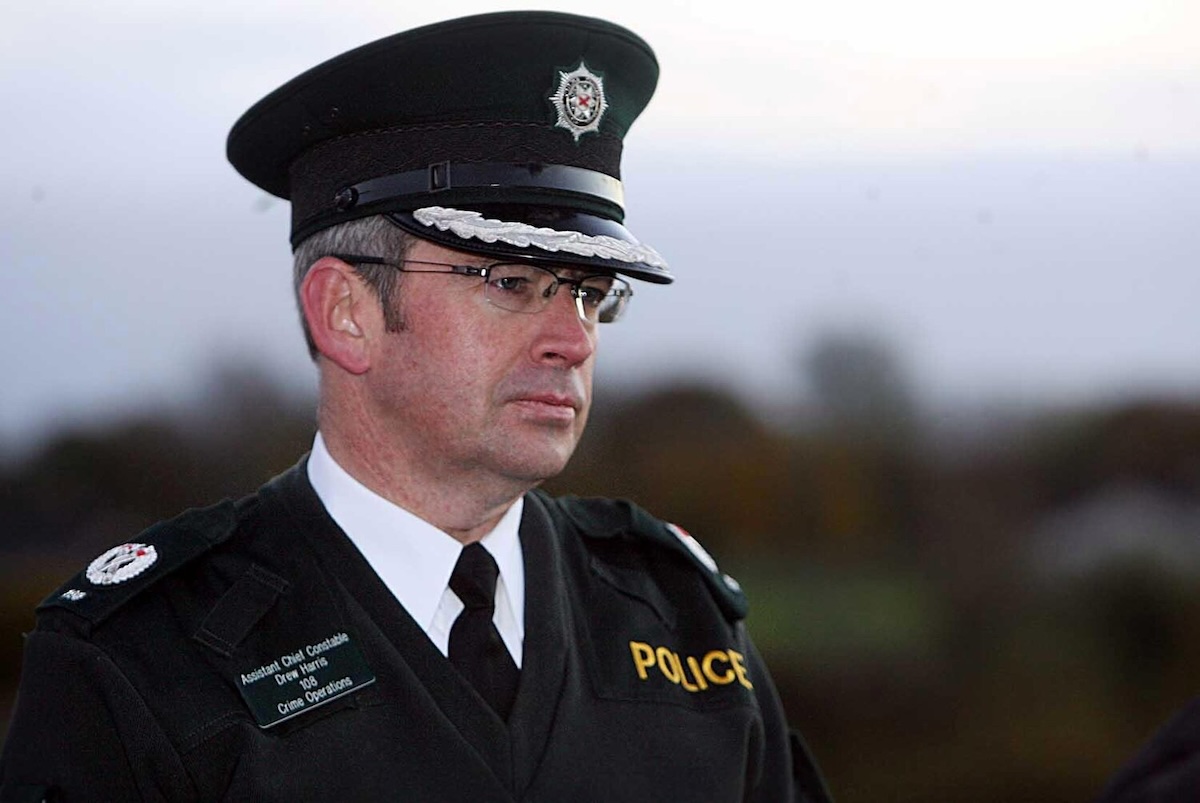
There are concerns that the uncovered surveillance of journalists and lawyers could be continuing in the north of Ireland and may also be taking place in the 26 Counties under Garda Commissioner Drew Harris.
Harris was in a top post in the ‘intelligence’ Special Branch of the PSNI (formerly RUC) when the surveillance activities, recently found to be illegal by an investigatory tribunal in London, were taking place.
Despite being appointed to the top Irish policing post, he is widely suspected of playing a continuing role for British intelligence.
Now questions are being asked on what he knew of the illegal spying operation against two journalists investigating RUC collusion in the Loughinisland massacre of 1994. No one has ever been charged over the attack that left six Catholic men dead.
In a landmark judgment before Christmas, in the first order of its kind, the PSNI were ordered to pay the two journalists, Trevor Birney and Barry McCaffrey, £4,000 each in damages.
It came after “inappropriate” search warrants against the men were quashed in court in 2019, when the arrests of both were also ruled unlawful. The PSNI apologised and damages of £875,000 were issued.
Speaking to the Sunday Times, Mr Birney said that “serious questions” now had to be asked about the role of the Garda Commissioner in his previous post, adding it “would be hard to believe Drew Harris had no knowledge” of the surveillance.
He said: “I think there are serious questions to be asked like, did Drew Harris take the playbook from the PSNI and adopt the same techniques in Dublin?
“Journalists in Dublin have raised concerns around surveillance and there is good reason to suspect that Harris must have known, as a senior officer, about the surveillance of journalists in Belfast.”
Harris has pointedly dodged answering a question on his actions at the time. When asked if he had “no, some, or complete” knowledge of the decision to spy on the journalists, a Garda spokesman said only: “Commissioner Harris was not asked to give evidence to the Investigatory Powers Tribunal on this matter.”
Mr Birney is also calling for a public inquiry into the long-running PSNI surveillance practices, including the monitoring of mobile phone calls to try to identify the men’s journalistic sources.
it emerged at the tribunal that over the past 14 years, the PSNI/RUC had sifted through the phone records of 323 journalists and 500 lawyers.
Mr Birney said: “There is no doubt in my mind that there is a dragnet operation in place today [to find journalists’s sources]. There seems to be an endemic culture, not only in Northern Ireland but in Britain.
“Can you imagine the number of Guardian or Observer journalists over the years who’ve been ringing Scotland Yard about a story that isn’t really in their [the police’s favour]? What I suspect is that that the same thing has happened to them in order to find the sources.
“We don’t for a minute believe that this was a PSNI playbook. It’s clear to me that, as a small regional force, PSNI were relying on the expertise of the security services [MI5] and Scotland Yard.”
The reporters only found out last year, almost four years after filing a complaint, that, without their knowledge, the tribunal had been holding secret sessions with PSNI, MI5 and GCHQ.
“We have no idea what was said so there is no way to know the full picture,” said Mr Birney. “We’ve been allowed to look through the letterbox of a very dark house, and all we’ve been allowed to see is what’s in immediate view. The house remains dark and that’s what we’ve got to illuminate and what a public inquiry would do.”
![[Irish Republican News]](https://republican-news.org/graphics/title_gifs/rn.gif)
![[Irish Republican News]](https://republican-news.org/graphics/title_gifs/harp.gif)

